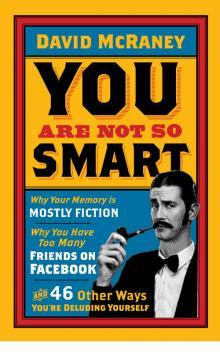More on this book
Community
Kindle Notes & Highlights
Read between
May 16 - June 26, 2024
Capable psychonauts who think about thinking, about states of mind, about set and setting, can get things done not because they have more willpower or drive, but because they know productivity is a game played against a childish primal human predilection for pleasure and novelty that can never be excised from the soul. Your effort is better spent outsmarting yourself than making empty promises through plugging dates into a calendar or setting deadlines for push-ups.
No matter what you encounter in life, your first analysis of any situation is to see it in the context of what is normal for you and then compare and contrast the new information against what you know usually happens. Because of this, you have a tendency to interpret strange and alarming situations as if they were just part of business as usual.
Normalcy bias flows into the brain no matter the scale of the problem. It will appear whether you have days and plenty of warning or are blindsided with only seconds between life and death.
In any perilous event, like a sinking ship or a towering inferno, a shooting rampage or a tornado, there is a chance you will become so overwhelmed by the perilous overflow of ambiguous information that you will do nothing at all. You will float away and leave a senseless statue in your place. You may even lie down. If no one comes to your aid, you will die.
John Leach, a psychologist at the University of Lancaster, also studies freezing under stress. He says about 75 percent of people find it impossible to reason during a catastrophic event or impending doom. On the edges, the 15 or so percent on either side of the bell curve react either with unimpaired, heightened awareness or blubbering, confused panic.
To suddenly stop moving and hope for the best is called fear bradycardia, and it is an automatic and involuntarily instinct. This is sometimes referred to as tonic immobility.
Normalcy bias is refusing to believe terrible events will include you even though you have every reason to think otherwise. The first thing you are likely to feel in the event of a disaster is the supreme need to feel safe and secure. When it becomes clear this is impossible, you drift into a daydream where it is.
They were begging the world to return to normal by engaging in acts of normalcy.


